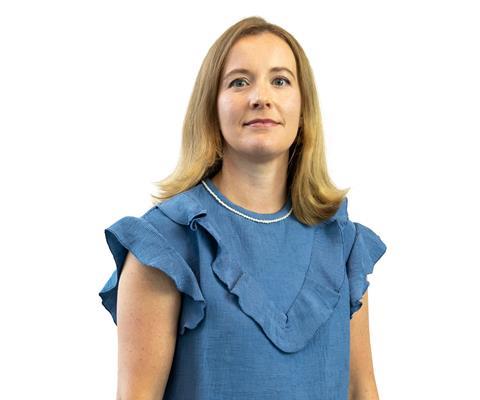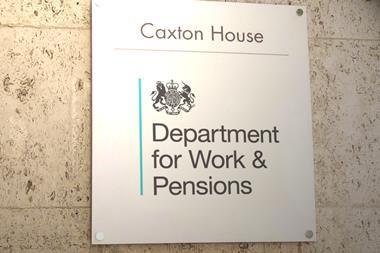In order to help the UK pensions industry achieve the target of £75bn of additional investment the government set to help grow the UK economy, consultants and trade bodies have called on the government to focus on the regulatory framework for trustees, not education.
On 10 July, during his Mansion House speech, in which he set nine financial service reforms, chancellor of the exchequer Jeremy Hunt issued a call for evidence on trustees skills, capability and culture.
It focuses on whether trustees have sufficient knowledge and skills to properly consider investment, especially with this being the focal point of the reform package announced by Hunt.
However, according to Claire Whittaker, actuary and head of operational excellence at Isio, more robust vetting of trustees could “turn into a solution looking for a problem”.
She said that while everyone wants high quality trustees, it is important to recognise the difference in the role of defined benefit (DB) and defined contribution (DC) scheme trustees as they might need different solutions.
Whittaker pointed out that DB trustee skills being lacking has been implicated as one of the reasons that schemes don’t invest in UK productive assets.
She said: “Most DB trustees aren’t investing because of lack of knowledge or skills but because it isn’t the right thing to do to comply with regulations. They are doing the right thing by members”.
Whittaker added that while the intentions around an accreditation scheme to improve standards of trustees are “positive in principle” It may prove “onerous” and force lay trustees out or reduce the diversity on trustee boards.
For DC schemes, she said that as more DC schemes edge towards master trusts and consolidation, it might make sense to introduce a more robust process to mandate higher standards to drive improvements or consolidation moving forward.

But she added that for all trustee boards, diversity and a broad mix of skills is important and said that any kind of assessment of trustee standards must take those factors into consideration.
She said: “Schemes are most effective when there are multiple trustees from different backgrounds. Concerns that professional trustees may become too dominant could be addressed by requiring that at least two professional trustees are appointed to larger schemes. We support making the bar higher, but care should be taken to ensure we still encourage fresh thinking in schemes in the form of new trustees.”
Steven Taylor, pension schemes committee chair at the Association of Consulting Actuaries (ACA), said the main reason DB schemes do not invest in alternative assets is not a lack of skill or knowledge but rather a regulatory regime that DB trustees have been operating under for decades, which has “pushed” them to take less investment risk in order to increase the certainty of members receiving their benefits in full.
Taylor added that if unlisted equities were a useful asset class to achieve these objectives, investment consultants would be advising on that basis and trustees would be getting training and exposure to this asset class.
For DC schemes, Taylor pointed out that it is usually easier for larger DC schemes to incorporate more illiquid assets as part of their default strategy or in the funds they make available.
He added that there is also a clear regulatory push in this direction, with smaller schemes being tasked with improving standards or consolidating. A higher standard for DC trustees, such as mandatory accreditation or a requirement to appoint a professional trustee, may be a further stick to drive consolidation at a greater pace.
Legal framework
LCP has highlighted that it does not believe trustees’ knowledge and understanding is a barrier to investing in complex assets such as illiquids, but rather the current regulatory framework and definition of fiduciary duty may be acting as a barrier.
As a result, LCP called for new regulations that create a different risk/reward environment for DB trustees that, in turn, can be expected to support more widespread, and for longer, DB investment in productive finance.
It proposed that a key to doing this would be to undertake a wider review of fiduciary duty to enable trustees to look beyond scheme membership to the members’ best interests over their lifetime and to allow trustees to consider the macro impact of their investment decision in terms of the energy transition and climate change.
LCP also said there should be an extension of existing guidance on investment to set out how trustees should best think about productive assets and how to balance the different time horizons of members and risks.
There should also be more guidance for DC schemes on the selection and oversight of a DC pension in a master trust and on the valuation of illiquid assets.
LCP added that accreditation should not be a tick box exercise and any strengthening of the current accreditation schemes would need to be at a pace that could be supported by the trustee community naturally rather than rushed through.
“Trustees know what they are doing”
Nathalie Sims, partner at LCP
Nathalie Sims, partner at LCP, said: “Trustees know what they are doing. This consultation is a great opportunity to review the current regulatory framework and support provided for trustees to make the best decisions for the future of their members.
“The rapid growth of the professional trustee industry is a testament to how much demand there is to have additional support on trustee boards within the investment industry and beyond, and this growth is likely going to continue.”
Laura Amin, partner at LCP, added: “There are exciting prospects ahead for how DB pension funds can help contribute to the wider economy, and there is a common thread across the DWP’s calls for evidence as DB investment in productive finance could be a win for scheme members, for sponsors, for UK plc and the government’s net zero agenda.”
However, she added that this can only be achieved provided trustees have adequate support and guidance to make these investment decisions for a sustainable future.
This includes a re-think of fiduciary duty to enable trustees to look beyond scheme membership to the members’ best interests over their lifetime and to acknowledge the macro impact of their decisions in terms of the energy transition and climate change.
Read the digital edition of IPE’s latest magazine























